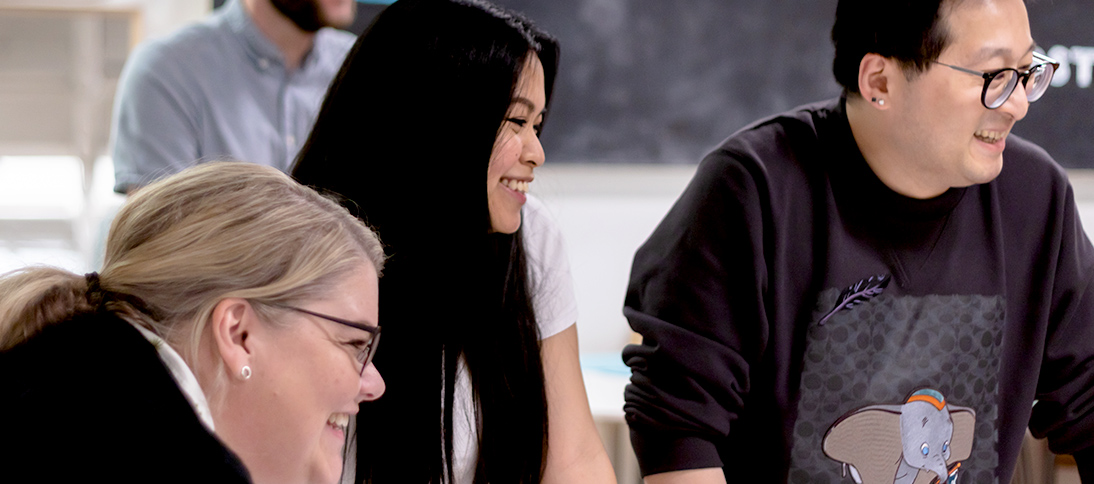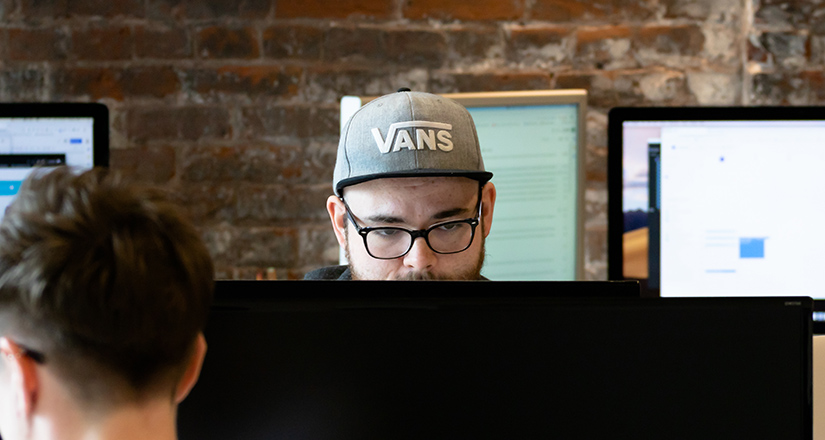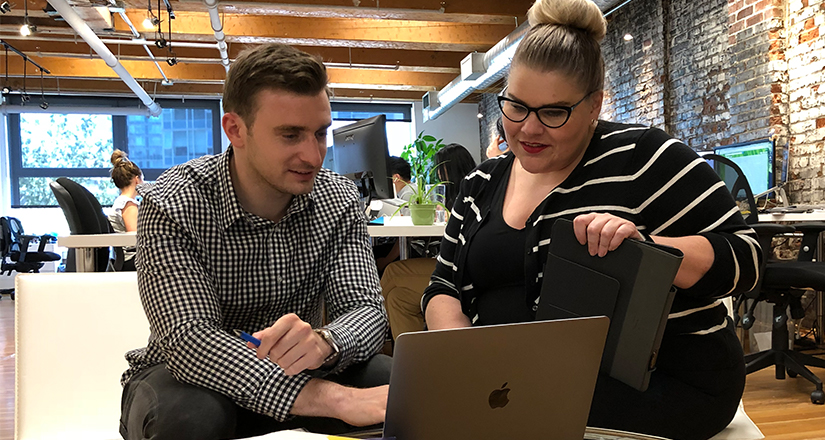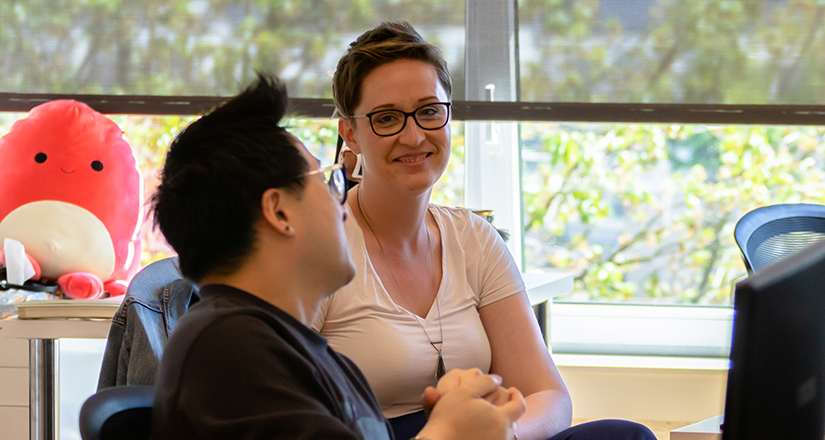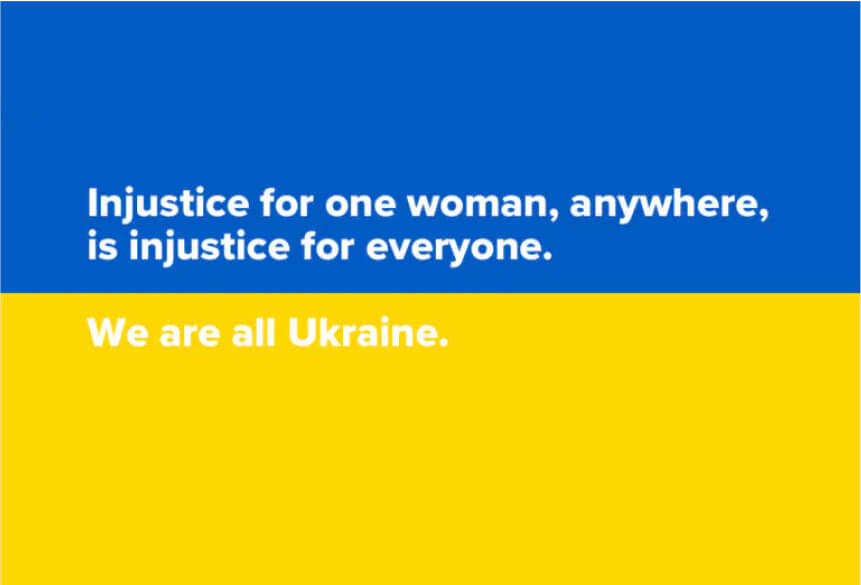BSTRO has never had to strive for diversity. We were born from it.
We’re an LGBT- and woman-owned agency that emerged from the largely male thunderdome of Silicon Valley. Our diversity affects everything we do: it’s our strength, and we wear it like a badge of honor.
As a straight white male, I’m in the minority at BSTRO. The more diversity present in the places I’ve worked, the more efficient and happy those businesses have been. There’s no mansplaining in our meetings, and they’re often led by strong and intelligent women. There’s no judgment, and no exclusionism. It’s a joy.
That holds true for myself, privileged as I am. Despite belonging to the demographics that historically dominated the workplace, diversity is vital for my happiness in a working environment.
And in the modern world, diversity isn’t just a bonus: especially in marketing. It’s a necessity.
So, here are my personal observations on why you need to make sure your team is properly representative of the world you’re marketing to.
By the way: my amazing and diverse colleagues are too busy designing, developing and optimizing the websites and marketing plans of our amazing and diverse clients, which is why I’m adding to the pile of articles about diversity written by straight white men.
Whole New Worlds
In a recent meeting, we were asked about the most ‘exotic’ places we’ve been.
My answer – having been born and raised in England – was a hazy beach, lined with palm trees under a cloudless sky.
But for Kim, my exotic is her home. Our rockstar developer told us that the most exotic place that she’d been to was the place she was born: a farm in the Philippines, mango trees and pigs included.
And for Jill, BSTRO’s founder, it was a heartwarming and heartbreaking journey to Burkina Faso, where the most exotic thing the children she met in the villages outside of Ouagadougou had ever seen was her own skin and eye color.
Everyone had their own unique answer, and they also had their own interpretations of the question. Russian-born Anastasia found her exotic home in British Columbia’s own Clearwater.
Canadian natives Mack and Scott had their most exotic experiences in Las Vegas and on a Thai beach. Lisa’s exotic adventure involved meeting flamingos in the wild, while Megan’s involved sleeping in a camper in a Walmart parking lot.
When you work as a cohesive team with people who have all lived completely different lives, every word and every scenario has a meaning unique to each person. You’re no longer stuck with your interpretation of a word: you have multiple global perspectives on it.
That is infinitely more interesting than sharing the same experiences and the same understandings of the world at large. And more than that, it’s a non-negotiable necessity for marketing in the modern world.
In marketing, rule number one is to know your audience. Nowadays, with most marketing done via a global internet, knowing your audience means knowing a lot of people, all with different stories, backgrounds, ethnicities, and more.
If this Ancestry.com ad was created in a diverse room, they may have saved themselves from creating an offensive campaign they later had to pull.
More Diversity, More Options for Problem-Solving
I face a brand new challenge every single day at BSTRO. Challenges like: what’s the best strategy for this particular client? What’s an even better CTA than the one we already have on this page? Is it spelled “judgment,” or “judgement”? Well, like most questions, the answer depends on where you’re from.
Picture this: a problem comes up in a meeting. Let’s say everyone present in this particular meeting went to the same school and is from the same culture and of the same ethnicity.
They have ideas, but they are all informed by the same framework. And if that framework hasn’t been reviewed by people from all walks of life and in all countries, how can you be sure it’s not outdated?
Words – and everything else – change over time, and there is no such thing as a permanent ‘normal’. In a diverse environment where everyone has different experiences to draw from, there’s always an “aha, I hadn’t thought of it like that moment.” You learn every single day, and you take what you’ve learned and use it to better engage with your world as it is today—not as it was yesterday.
When I watch our genius designers discuss a problem and share feedback, it strikes me that they’re doing it from three totally different perspectives.
When they share their ideas and opinions on typography, they’re bringing three different native languages to bear, and those languages have three different alphabets – two based on Cyrillic and one based on Latin script. Letters and symbols that looked backwards to one of them growing up might well have looked perfectly formed to the others.
Everything, from the languages we grew up speaking, to the year we were born and the economic situations we grew up in, colors our world differently and gives us different perspectives on a problem.
If you’re unconvinced, there is a tangible impact: a recent study showed inclusive workplaces were 1.7 times more likely to be innovation leaders.
Diversity is Joy
Representation is step one in improving the diversity of your workplace, but it’s only the beginning. The next and most important step is to celebrate those differences.
Stats have shown that a happy employee is indeed a good employee. More and more, diversity is becoming a factor that makes for both of those.
When I moved to Canada I already spoke the language, and for obvious reasons, the culture of British Columbia is pretty similar to the culture of Britain. As such, I moved into a position of major privilege, and yet trading London for Vancouver was still an incredibly isolating experience.
Imagine my joy, then, to find that BSTRO felt both completely unfamiliar and a lot like home all at once. What made the difference is my new colleagues were used to being around people who didn’t have the same accent or the same native language as them. There was no judgment, but a collective joy that new ideas and a new voice were joining the conversation.
Differences aren’t ignored or tripped over in a truly diverse workplace, but celebrated.
At BSTRO we chat about our families and homes, our upbringings, our politics. We teach each other our slang, we compare the food we grew up eating, and we share our favorite snacks. I’ve learned a lot of things from a lot of people in these conversations, and I learn more every day.
That’s probably why 67% of job seekers – including myself – say diversity is an important factor in whether they’ll accept a job. Inclusivity is vital for attracting top talent.
I can testify for the science.
At BSTRO, my job is made infinitely better by the sheer variety of the people I work alongside. We’re LGBT-owned, 75% of our development team is female, and nearly half of us were born outside of North America.
Every day, that diversity brings us so much joy and is a pillar of strength that enables us to market to the modern world with empathy and thought—avoiding costly errors in judgment. You’ll remember Pepsi and Kylie Jenner’s tone-deaf bungle back in 2017.
And if you’d like us to bring some of our joy, empathy, and consideration to your marketing, you can always schedule a free consultation!
